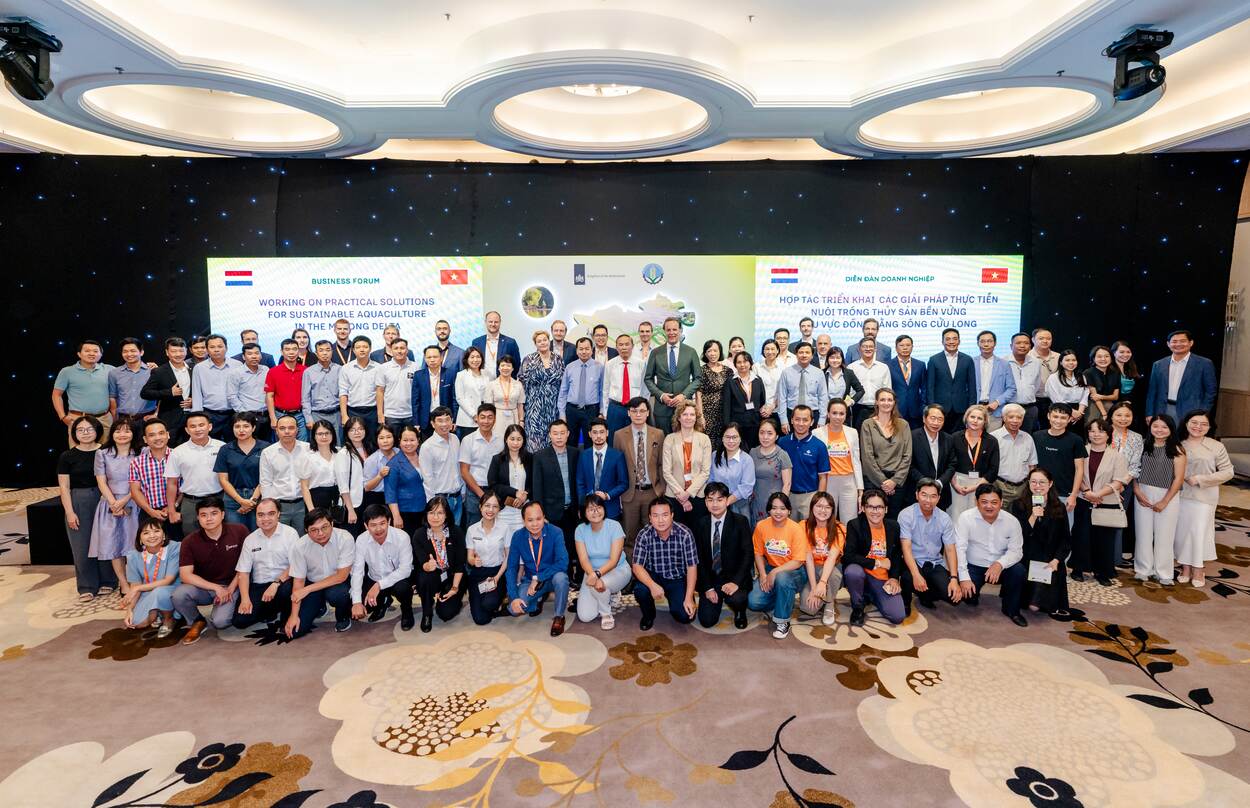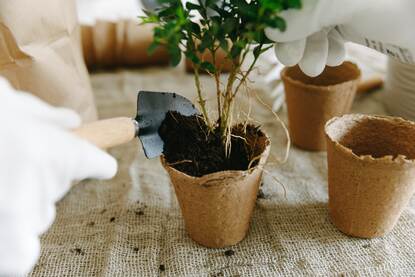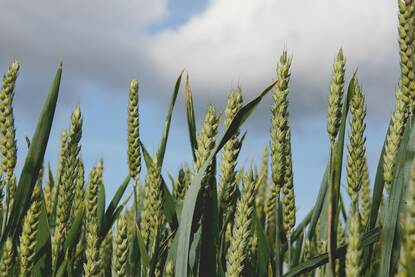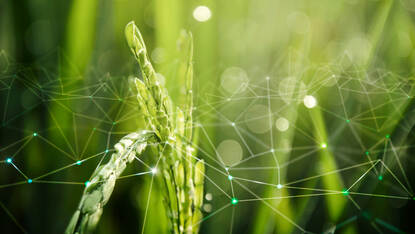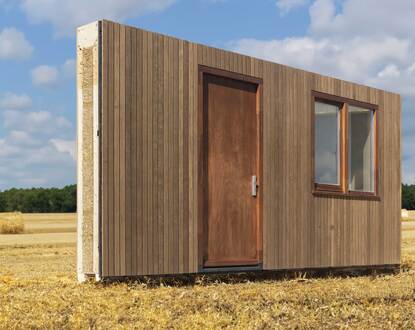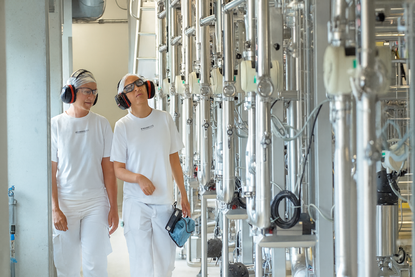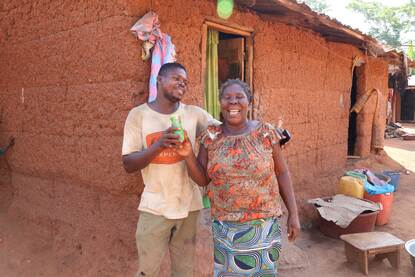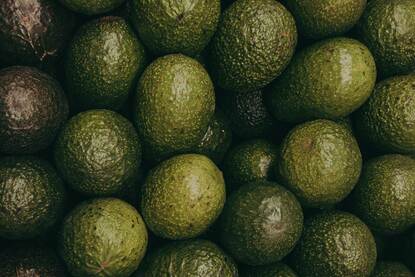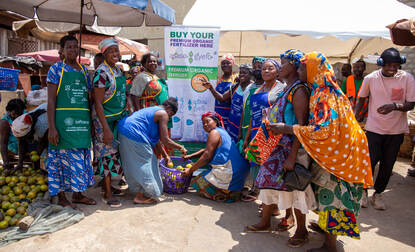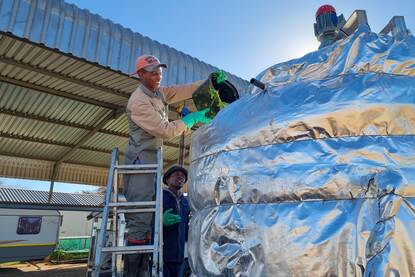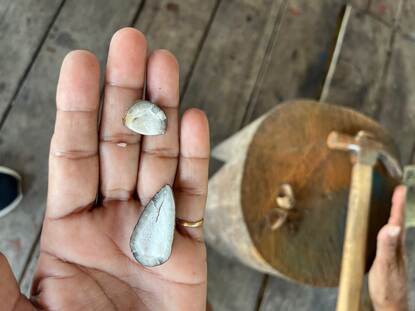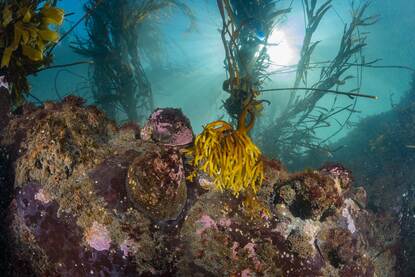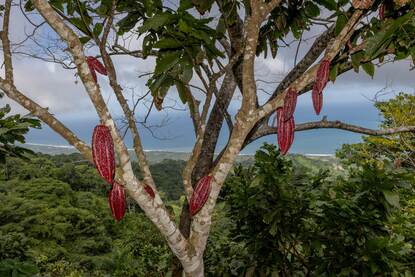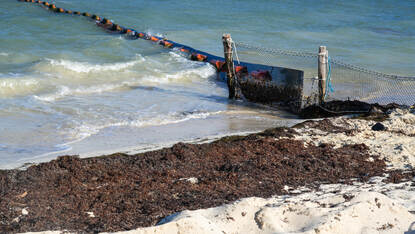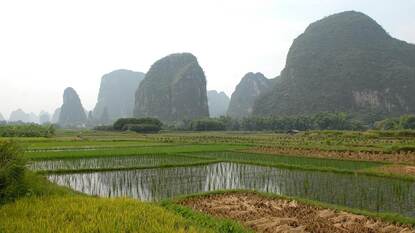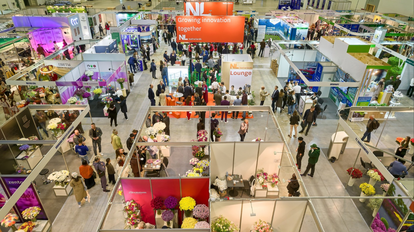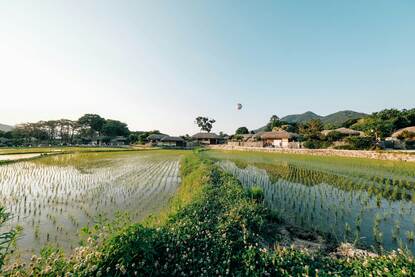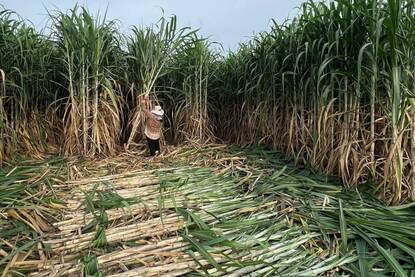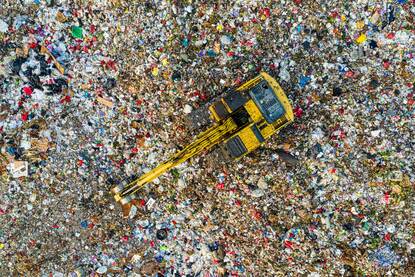Foto The Vietnam - Netherlands Aquaculture combitrack business forum in Can Tho 2024. Source: LAN Vietnam
Vietnam, in the heart of Southeast Asia, is undergoing a major transition. Confronted with a rapidly growing population, climate change and environmental pressures, the country is steering agriculture and food systems toward a more sustainable, circular, and resilient future. Central to this is the bioeconomy: using biological resources efficiently to produce food, materials, and energy while reducing waste and fossil dependence. For Vietnam, this means new value chains and resilience, supported by Dutch expertise through the Netherlands Agricultural Network (LAN) team at the Dutch Embassy in Hanoi.
Vietnam is one of the world’s most biodiverse countries, ranking 16th globally, but at the same time, it is among the countries most vulnerable to climate change. It faces severe threats from rising sea levels, extreme weather events, and saltwater intrusion, which endanger its agriculture, coastal communities, infrastructure and economy overall.
Recently, Vietnam's policy environment - the overall setting of general government policies, regulations, national strategies and official documents - has rapidly evolved to prioritize circular and sustainable approaches, set in a series of ambitious national policy frameworks. These strategies not only set a clear direction for the country’s economic growth but also create a supportive direction for international collaboration.
Key strategies include:
-
The Vietnamese Prime Minister’s historic pledge for Vietnam to achieve net zero by 2050. The pledge emphasized that Vietnam, despite being a developing nation, would prioritize climate action as its highest development priority.
-
The National Green Growth Strategy for 2021–2030, with a vision to 2050, emphasizes low-emission production, resource efficiency, and sustainable consumption across all sectors. Agriculture is identified as a key sector for green transformation, calling for reductions in greenhouse gas emissions, promotion of organic farming, and widespread adoption of digital and climate-resilient technologies.
-
The Circular Economy Action Plan through 2035, and many other related frameworks. It prioritizes the effective utilization of natural resources, the maximization of recycled materials, and the reduction of waste. It shifts the country towards sustainable production and consumption models, optimizing natural resource use, reducing waste, enhancing environmental protection. It outlines strategies for integrating circular economy principles into industries such as agriculture, energy, manufacturing, construction and waste management by 2035. In agriculture, this means using crop residues like rice straw to make biofertilizer, composting food waste, or converting livestock manure into biogas—turning what was once discarded into valuable inputs for food production.
These policy documents are being translated into tangible initiatives by key government bodies, especially the Ministry of Agriculture and Environment (MAE). Examples include Vietnam’s Strategy for Sustainable Agriculture and Rural Development, aiming to foster a farmer-centered, environmentally sustainable, and economically competitive agricultural sector.
Aligning with LVVN's global agenda
Although it is still in the early stages of developing its bioeconomy, Vietnam has demonstrated strong ambition through its policy direction. Realizing these visions, however, presents significant challenges, including limited infrastructure, fragmented value chains, and the need for greater capacity in research, technology adoption, and cross-sector coordination.
This evolving policy landscape aligns closely with the Dutch Ministry of Agriculture, Fisheries, Food Security and Nature’s (LVVN) global agenda on sustainability, innovation, and circularity, offering a strong basis for long-term cooperation between the Netherlands and Vietnam. This is achieved through:
- Public Private Partnership (PPP) for sustainable agriculture
- Developing and implementing Mekong Delta regional masterplan
- Transforming the food systems via PPP
- Promoting private sector development
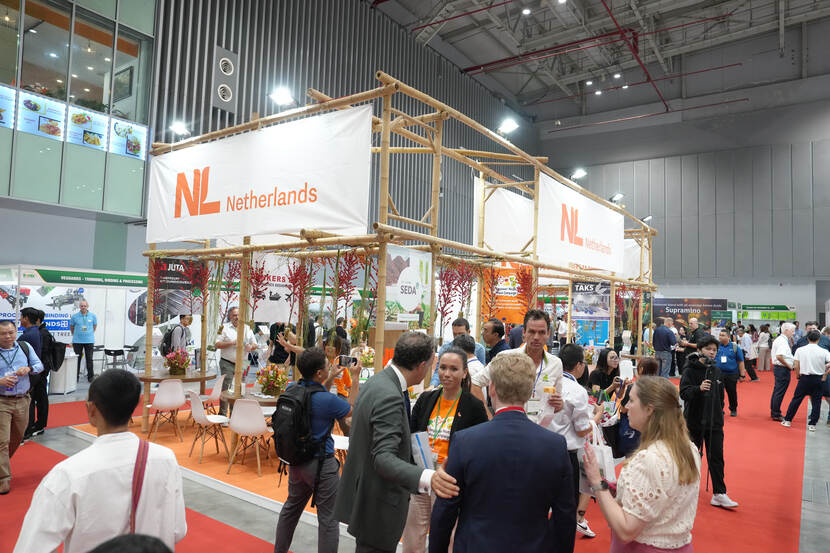
Bridging Dutch expertise with Vietnamese needs
For many years, the Netherlands and Vietnam have been trustworthy partners in trade and investment. Over a decade ago, the two countries signed a Strategic Partnership Arrangement on sustainable agriculture and food security, marking a milestone in the bilateral relationship.
The partnership focuses on decreasing the footprint of agriculture, using land and water resources more efficiently, reducing food waste, and applying good agricultural practices. These elements form the core of an integrated agenda between the two countries.
The LAN team at the Dutch Embassy in Hanoi plays a pivotal role in facilitating public-private partnerships, knowledge exchange, and innovation pilots that address key sustainability challenges in Vietnam’s agri-food sector. Working closely with Vietnamese ministries, local authorities, research institutes, and private sector stakeholders, they promote innovations that support Vietnam’s green transition, which also fully align with the global objectives of LVVN.
‘The challenges we face - whether Vietnamese or Dutch - require a fundamental shift toward more sustainable food systems,’ Ingrid Korving, Agricultural Counselor at the Dutch Embassy in Vietnam shares. ‘This transformation calls for collective responsibility and collaboration - from civil servants, researchers, farmers, and professionals across the value chain - to tackle climate change, protect biodiversity, and promote more sustainable practices at every level. Examples include reducing chemical pesticide use through Integrate Pest Management (IPM), using biological control agents (BCAs) as part of IPM, working together towards sustainable food systems, promoting good practices in aqua and horticulture and much more. And the Netherlands, as “the small country feeding the world”, is ready to work with Vietnam - the delta country with many shared challenges and opportunities.’
‘The challenges we face require a fundamental shift toward more sustainable food systems’
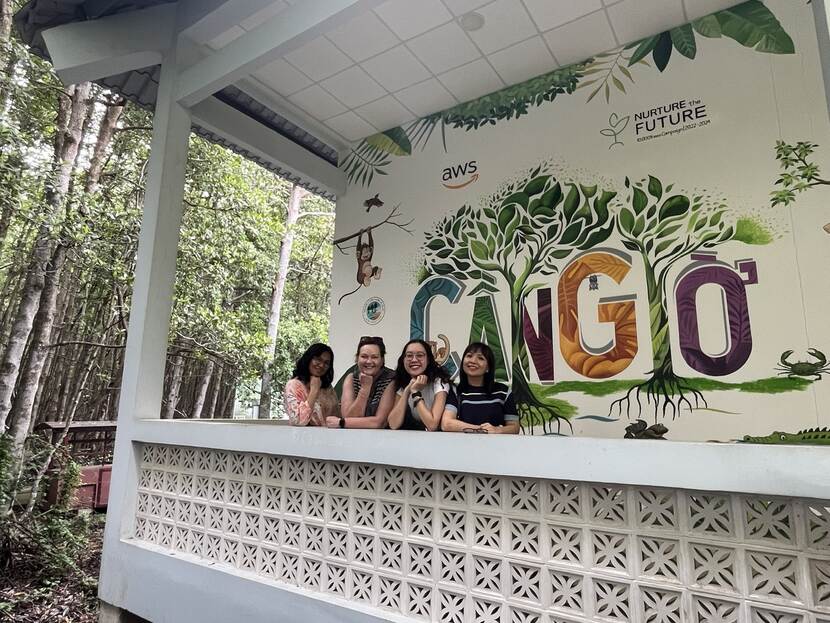
Moving towards more sustainable practices
Through joint activities with the Vietnamese Ministry of Agriculture and Environment (MAE) and local authorities, the LAN team facilitates a move towards more sustainable practices. The team has held trainings, workshops, policy dialogues, demonstration projects, and pilots on various topics. For instance, in collaboration with MAE Plant Production & Protection Department, the Dutch Embassy organized a series of seminars on the application of biological crop protection agents (BCAs) as part of IPM. Participants included Vietnam's Ministry of Agricultural & Environment, local authorities, farmers, agricultural universities, Dutch and local companies. This is a crucial step in building a resilient, circular, and sustainable agriculture in Vietnam over the next decade.
The Netherlands also maintains a strong presence at major trade events like the annual HortEx Vietnam. At these events, Dutch companies showcase cutting-edge innovations in various sub-sectors such as biocontrol, logistics (climate-controlled transport of agri-goods or water storage solutions for agricultural uses), substrates, input materials (high-quality flowers and bulbs) and sustainable farming methods (including natural pest control and greenhouse technology.
Watch 'The Future of Food' for more information about how Vietnam and the Netherlands are working together in contributing to the food system.
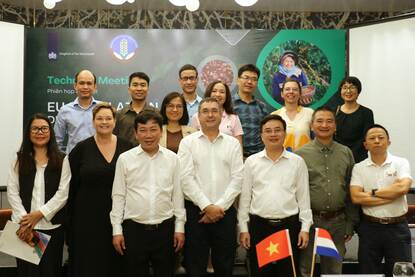
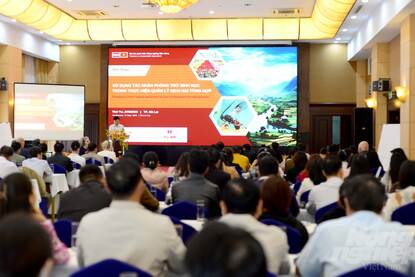
Vietnam’s coffee sector - where the country leads the world in Robusta production (type of coffee bean) - is another area of joint action. With the EU Deforestation Regulation (EUDR) on the horizon, the Netherlands – as a key gateway for Vietnamese coffee to Europe – is supporting efforts to improve traceability, prevent deforestation and protect the environment. Many other initiatives are helping farmers adopt better practices in fertilization, soil and water management, such as the project improving water availability and safety through optimized irrigation and fertilizer application by hydroponic growers in Vietnam and the Impact Cluster Project Quality Improvement of Tropical Fruits in Vietnam. These projects not only deliver tangible improvements on the ground but also contribute to broader goals: building sustainable, efficient, and climate-resilient food systems for the future.
Vietnam-Netherlands aquaculture combitrack
The cooperation between Vietnam and the Netherlands extends beyond horticulture. Initiatives such as the Vietnam–Netherlands combitrack ‘Transition towards a sustainable aquaculture in the Mekong Delta’ also showcase sustainable approaches in aquaculture, another critical sector for Vietnam.
By combining Dutch expertise with Vietnamese ambition, this initiative contributes to sustainable aquaculture while supporting Vietnam’s wider transition towards a resilient bioeconomy. The combitrack is an integrated approach that leverages shared expertise and knowledge from multi-stakeholders to foster sustainable environmental, social and economic development of the Mekong Delta aquaculture. It aims to achieve these three long-term outcomes: sustainable farming; social impacts; and stronger economic cooperation.
Some outstanding projects under the combitrack include:
-
Transforming the pangasius value chain in Vietnam by DeltaVax consortium.
-
Driving net-zero transition of the shrimp sector in Vietnam by ShrimpTech Impact Cluster
Specifically, ShrimpTech has conducted various activities like trainings for farmers focused on profitable net-zero practices, including disease prevention, energy optimization, technology integration, input management, and carbon reduction at farm level.
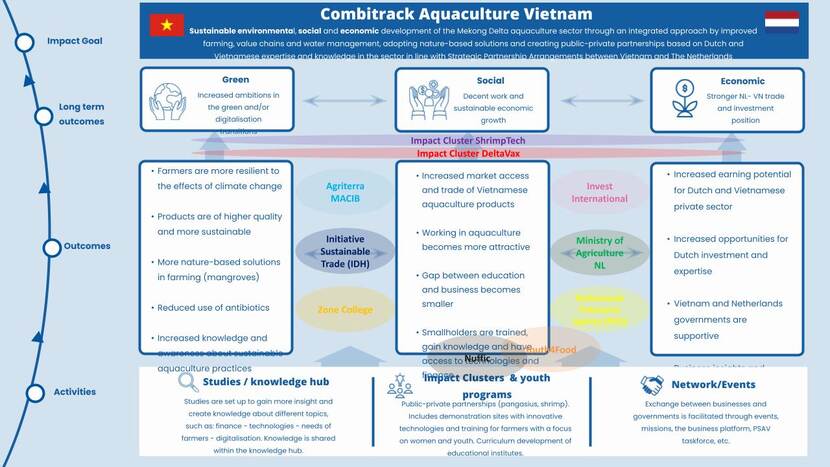
‘The combitrack contributes to sustainable aquaculture while supporting Vietnam’s wider transition towards a resilient bioeconomy’
Dutch companies in Vietnam
Dutch private sector initiatives in Vietnam are also providing real-world examples of how circular principles can create value in a bioeconomy. These companies are not just doing business; they are demonstrating how to build profitable and sustainable value chains by turning waste into valuable resources.
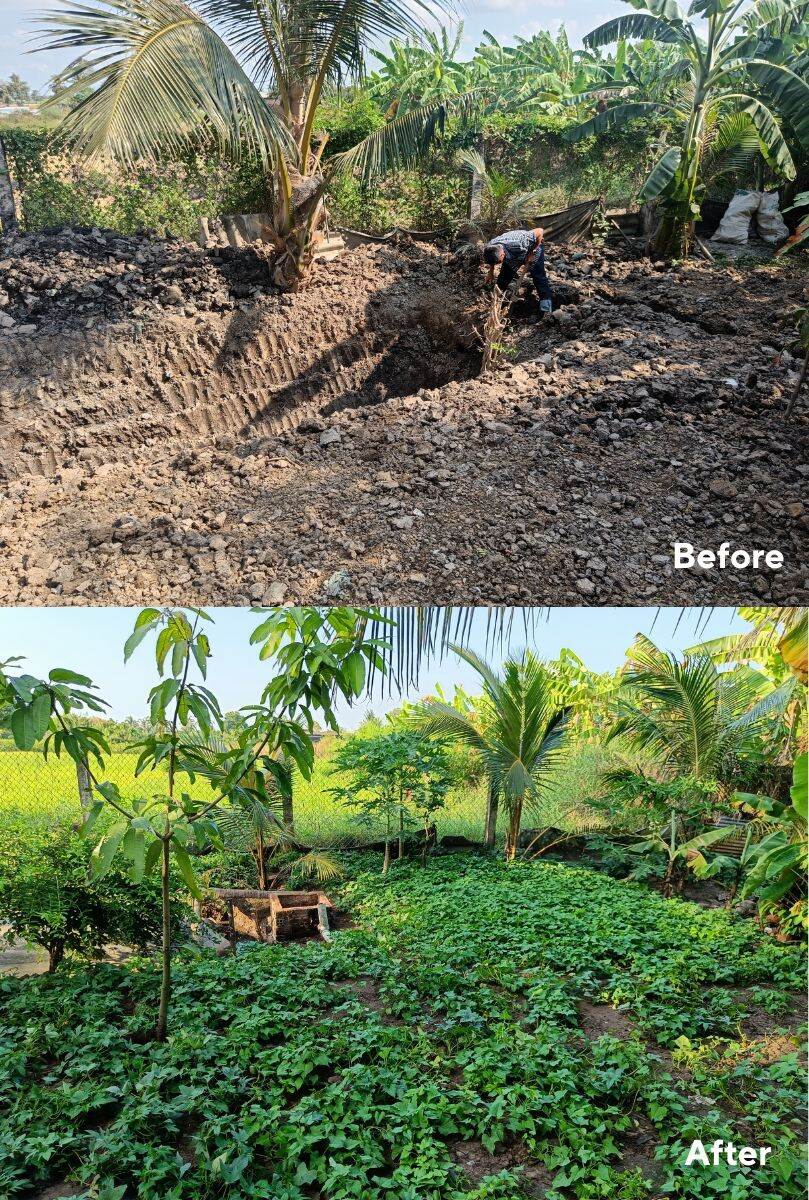
For example, Heineken Vietnam demonstrates a full circular economy model by recycling nearly all by-products, using renewable energy, and achieving zero waste to landfill.
The new company Verdant Biogas B.V. helps small farmers turn livestock waste into clean energy and organic fertilizer, supporting Vietnam’s low-carbon transition.
Green Coco Foods processes the whole coconut into food and non-food products, applied modern technology to produce and export high-quality organic coconut-based products, showcasing joint efforts of Dutch and Vietnamese innovation in Vietnam’s sustainable agriculture.
These different examples represent bioeconomy models as they utilize natural resources in innovative and sustainable ways to create value-added products, contributing to a more sustainable, low-carbon economy aligned with bioeconomy principles.
Upcoming events
Supported by strong policy frameworks and global collaborations, Vietnam’s bioeconomy is rapidly advancing through biotech development, circular practices, sustainable agriculture, and international collaboration, aiming to boost economic resilience and regional innovation leadership by 2030 and beyond.
In 2025 and 2026, there are a few upcoming events:
- IPM Vietnam Workshop - Launching Integrate Pest Management Lam Dong project on October 8, 2025.
- Vietnam - Netherlands Aquaculture Business Forum on November 12, 2025.
- Plant Breeders’ Rights (PVP Toolbox) workshops, 1-3 December, 2025.
- Salinity Innovation Mission in January 2026 (see text box below)
Salinity Innovation Mission Vietnam
The innovation mission will take place from 19 - 23 January 2026. The mission focuses on salinization in horticulture and aims to develop integrated solutions in sustainable and climate-smart food production in the Mekong Delta, Vietnam. You will explore opportunities for collaboration with Vietnamese partners in the Mekong Delta – a key region for vegetable and fruit cultivation heavily affected by salinization and climate change. The mission focuses on knowledge sharing, consortium building, and exploring projects within the broader partnership between the Netherlands and Vietnam.
Themes:
- Agricultural production in saline environments
- Water and soil management
- Innovative cultivation methods
- Smart irrigation, drainage, and water storage technologies
- Digitalization and data-driven horticulture
- Monitoring and sensor technology
- Breeding salt- and climate-resilient crops
Registration
Would you like to participate in this innovation mission? Please complete the registration form by September 29, 2025. Definitive participation depends on the number of available spots. The LAN team in Vietnam carefully considers if and how well your technology and expertise fit within the scope and goal of this mission.
More information
Would you like to know more about how Vietnam and the Netherlands cooperate on Vietnam’s bioeconomy? You can visit the country page of Vietnam at the website Agroberichtenbuitenland.nl of the Dutch Ministry of Agriculture, Fisheries, Food Security and Nature. You can also send an email to the LAN team at the Dutch Embassy in Hanoi: HAN-lvvn@minbuza.nl or follow Netherlands Agricultural Network in Vietnam on LinkedIn.
Read more
- Vietnam and the Netherlands - two delta countries working together
- Shaping Vietnam’s agricultural future with sustainable growth and organic fertilizers
